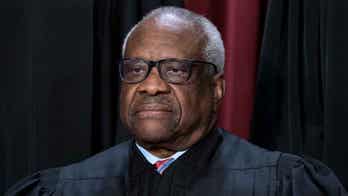The U.S. government took in more money than it spent in April, the first monthly surplus in nearly four years.
But that black ink won't last. The federal government is on track to exceed a $1 trillion deficit for the fourth straight year, keeping the contentious issue front and center during the 2012 presidential election.
The Treasury Department said Thursday that the U.S. deficit totaled $719 billion through the first seven months of the budget year, which began on Oct. 1. That's $150 billion lower than a year ago, but still large by historical standards.
For April, the government recorded a surplus of $59.1 billion. That's not unusual for this time of year, given that annual tax returns are due. But this marks the first April surplus since the 2008 financial crisis, a sign that the economy is healthier and producing more tax revenue.
Even with that improvement, the Congressional Budget Office is forecasting the deficit will total $1.17 trillion for the entire 2012 budget year. That's not much better than the $1.3 trillion deficit run last year.
Democrats and Republicans have offered conflicting strategies for reducing the deficit.
President Barack Obama's budget request calls a mix of spending cuts and revenue increases. A key part of his proposal includes allowing the Bush-era tax cuts to expire for couples making more than $250,000. Obama would also set a 30 percent tax rate on people making more than $1 million.
Mitt Romney, the presumptive Republican nominee, has proposed broad but largely unspecified cuts in spending. He opposes Obama's tax increases. He has also said he would like to cut the federal work force by 10 percent.
House Republicans have proposed a plan that includes deep cuts in Medicare and other programs and a new round of tax cuts that would most benefit wealthy Americans. Obama has called that spending plan "thinly veiled social Darwinism" and a radical vision for the country.
The government last recorded a surplus in 2001. The deficits returned after President George W. Bush won approval for broad tax cuts, pushed a major drug benefit program for seniors and launched wars in Afghanistan and Iraq.
The deficits grew further under Obama as the Great Recession reduced tax revenue as unemployment rose and income fell. The budget gaps have topped $1 trillion in each of his first three years in office.




